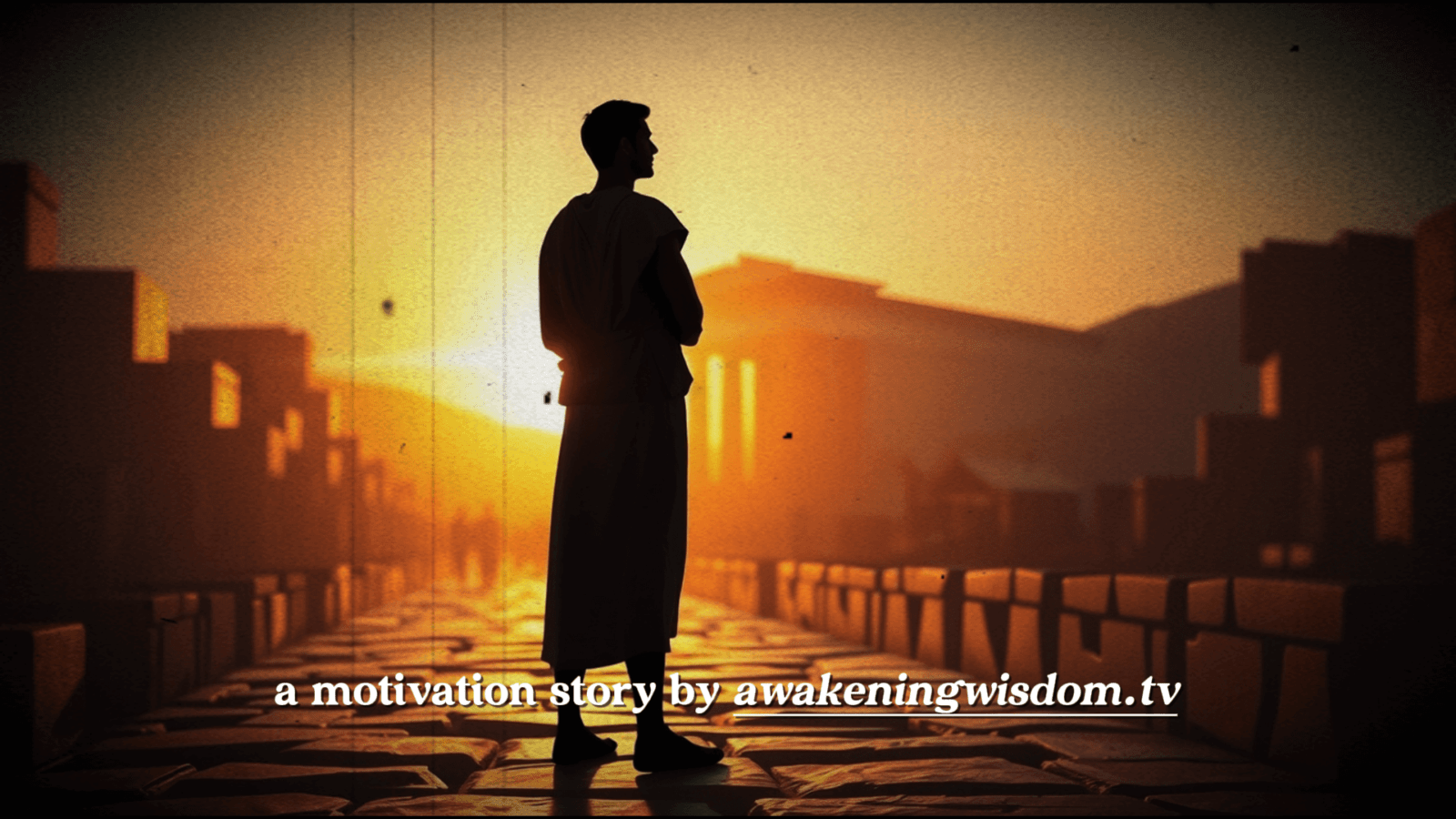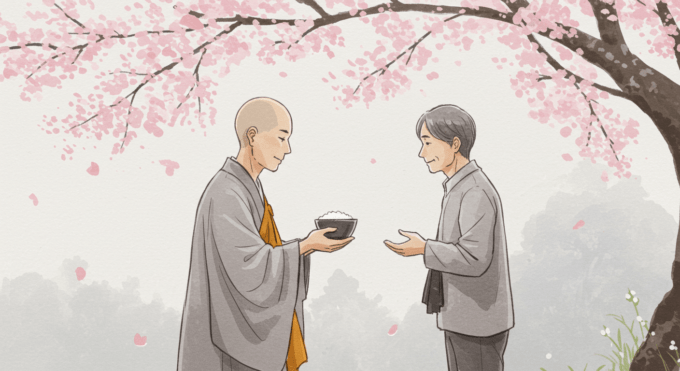What does it truly mean to live a good life? The Ancient Greeks believed in Eudaimonia—a life of purpose, virtue, and fulfillment. Discover a timeless story that reveals its true meaning.
The Young Man Who Wanted Happiness
In the grand city of Athens, where philosophers debated under the shade of olive trees and scholars gathered in the agora, there lived a young man named Alexios.
Alexios was restless.
All his life, he had been told that happiness was the greatest goal of man.
- His father, a wealthy merchant, believed happiness came from gold and wealth.
- His friends thought happiness was pleasure and enjoyment—good food, fine wine, and endless entertainment.
- The elders in the city said happiness was found in power and status—being admired, respected, and remembered.
Yet, none of these paths satisfied him.
“There must be something more,” he thought.
One evening, as the sun dipped behind the marble columns of the Parthenon, Alexios made a decision.
He would seek the wisest man in Athens—the great philosopher Aristotle—and ask him, “What is the secret to a life well-lived?”
The Meeting with Aristotle
At dawn, Alexios arrived at the Lyceum, where Aristotle taught his students.
The philosopher, now an older man, studied him with thoughtful eyes.
“You seek happiness, young man?” he asked.
“Yes, master,” Alexios said. “I want to know how to live the best life possible.”
Aristotle nodded. “Then walk with me.”
Together, they strolled through the gardens, passing by young students deep in discussion.
“Tell me, Alexios,” Aristotle asked, “what do you believe will bring you happiness?”
Alexios hesitated, then replied, “Wealth? Pleasure? Success?”
Aristotle shook his head.
“Those things bring only momentary satisfaction. True happiness is not found in fleeting pleasures or riches. It is found in Eudaimonia—the state of human flourishing.”
What is Eudaimonia?
“Eudaimonia?” Alexios repeated.
“Yes,” Aristotle said. “Eudaimonia is not just feeling happy—it is living in a way that fulfills your highest potential.“
He continued, “It is the pursuit of virtue, wisdom, and purpose. A life of excellence—not in material things, but in the soul.”
Alexios frowned. “But how does one achieve this?”
Aristotle smiled. “Let me show you.”
The Three Lessons of Eudaimonia
They came upon three different men working in the city, each with a different approach to life.
1. The Pleasure-Seeker
The first man sat outside a tavern, drinking and laughing with friends. He lived for pleasure and indulgence.
“Is he happy?” Aristotle asked.
“For now,” Alexios admitted, “but what happens when the wine runs dry and the laughter fades?”
“Exactly,” Aristotle said. “Pleasure is good, but it is fleeting. It does not lead to a meaningful life.”
2. The Ambitious Man
Next, they passed a powerful merchant counting his gold. His home was grand, his servants numerous.
“Is he happy?” Aristotle asked.
Alexios hesitated. “He has wealth and success, but… he looks troubled.”
Aristotle nodded. “Ambition can drive a man forward, but without virtue, it becomes an endless chase. He will always need more, never satisfied with what he has.”
3. The Philosopher
Finally, they reached a small school, where an old teacher sat under an olive tree, surrounded by students.
His robes were simple, his hands worn with age, but his eyes sparkled with wisdom and peace.
“And what about him?” Aristotle asked.
Alexios studied the man.
He did not have wealth, luxury, or status, yet… there was something different about him.
“He looks content,” Alexios said slowly. “Like he has found what truly matters.”
Aristotle smiled.
“This is Eudaimonia. A life spent cultivating wisdom, virtue, and purpose—not chasing wealth or fleeting pleasure, but becoming the best version of oneself.”
How to Live a Life of Eudaimonia
Alexios was silent for a long time, letting the lesson sink in.
“But how do I live this way?” he finally asked.
Aristotle placed a hand on his shoulder.
“By following these four virtues:”
1. Wisdom (Phronesis)
- Seek knowledge and never stop learning.
- Question, explore, and think deeply.
📖 “Knowing yourself is the beginning of all wisdom.” — Aristotle
2. Courage (Andreia)
- Do what is right, even when it is difficult.
- Face challenges with bravery, not fear.
📖 “Courage is the first of human qualities because it is the quality that guarantees the others.” — Aristotle
3. Justice (Dikaiosyne)
- Treat others with fairness and respect.
- Live with integrity and do what is right.
📖 “The just man is the happiest, and the unjust the most miserable.” — Plato
4. Temperance (Sophrosyne)
- Balance pleasure with discipline.
- Do not let indulgence control your life.
📖 “Self-control is the key to true freedom.” — Epictetus
The Final Lesson: True Happiness is Found in Purpose
As the sun set over Athens, Alexios bowed deeply.
“Thank you, master,” he said. “I understand now.”
Eudaimonia was not about chasing wealth, pleasure, or status.
It was about becoming a person of virtue.
It was about living a life of purpose, wisdom, and fulfillment.
And so, from that day on, Alexios walked a different path—not one of fleeting pleasure, but of excellence, growth, and true happiness.
Because now, he understood the greatest truth of all:
A life well-lived is not about what you have, but about who you become.









Leave a comment